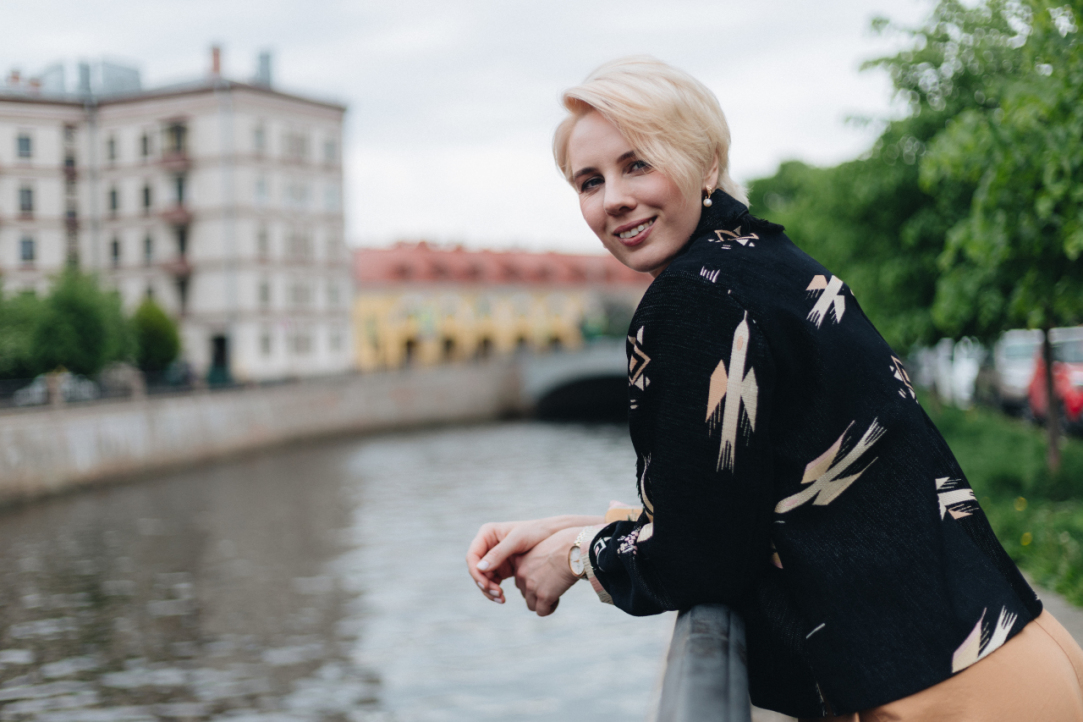'Education is the Promotion of the Country's Standards'
HSE University-St Petersburg is planning to continue its development in the international market. The opening of a representative office in India was an important step, but the university is sizing up other countries as well. In her interview with the periodical Kommersant, HSE University-St Petersburg Director Anna Tyshetskaya highlighted the major advantages of the campus and talked about the plans for further development in the international market.

— You have recently come back from India, where you agreed to cooperate with Swami Vivekanand Subharti University to open a representative office of HSE University in the coming year. Is this a new development vector for the university's international relations in light of the current changes in the economy and politics?
— It seems to me that the concept of the eastern vector is more than ten years old. Perhaps it was less obvious in St Petersburg due to the deeper ties with Europe. I used to work in Siberia, then in the Far East where, quite the opposite, there are long-standing traditions of cooperation with Asian countries. I personally have no doubts that true leadership is already there, in the East.
Since I joined HSE University, we have started discussing the opportunities for cooperation with the huge world beyond the 'Golden Billion'. In February, we understood that it was high time to take action. Now it is obvious that we should create new meanings, find new ideas and try unconventional solutions.
Why India? It is one of the most interesting markets in terms of education; it has a surging economy and is a leading country in population growth. Russian universities firmly occupied the niche of medical education in India. We are planning to enter the highly competitive educational markets in the fields of IT, economics and international relations, fields where we start to compete for talent with European, American and Australian universities.
Our trip to India proved that we have a chance. The population of India actively invests in the education of children. There are a lot of young people who aim to study both inside and outside of the country. That's why it is not surprising that now Europe, America and Australia are fighting for this market.
In this sense, if we as a state university do not enter this market now, we will lose another important tool for influencing the future. Education is the promotion of the country's standards—standards in medicine, IT, and engineering. This is 'soft power'. Every state is interested in extending its influence in the international arena. Education is one of the most effective tools for completing this task. So here, we are talking about a task not just for a single university, but for the whole Russian educational system: to enter the international market actively.
— Is India just a touchstone, a pilot project?
— No, it isn’t. At the moment, we are looking at 11 markets in different countries. For example, Thailand, Malaysia and Indonesia are very important areas we are working in as well. We should also remember the markets of Kazakhstan and Uzbekistan. It seems to me that Uzbekistan will be very important as an educational hub in the near future due to its convenient location between Asia and Europe. In general, there are interesting changes in their national system of education. It is very similar to what happened ten years ago, when the programme for universities' international competitive ability had just started. That is why the campus in St Petersburg is actively cooperating with almost all the key universities of Uzbekistan. We have much more in common than we could imagine: the language, common traditions in education and the city. Many vice rectors, rectors, and deans studied in St Petersburg.
— What advantages, in your opinion, does your university have for potential partners?
— I see it as the following. When we—HSE University-St Petersburg—enter other countries, we are perceived as a Russian European university. Yes, we are located in Russia, and we have our own educational traditions. But the current system of education at HSE University is clear to every international student.
— Russian universities' interest in entering these markets is understandable, but is there a reciprocal interest?
— Of course. In this regard, universities in Thailand, Malaysia and Indonesia do not care where we come from; they look at our place in international rankings and the fact that we speak the same language. Today, the language of science and education happens to be English.
For instance, a world programming championship was recently held where 3,500 universities from all over the world took part. First place in the team ranking went to MIT. HSE University-Moscow came ninth with a bronze medal, while HSE University-St Petersburg came sixteenth. When we come to a key university, for example, in Indonesia, our future partners look at the fact that our IT specialists are the sixteenth in the world. They don't look at where we come from.
University cooperation is always informal. We have people who are doing something interesting in science or education, and they have people doing the same. When two such people start working in the same laboratory and agree to carry out a joint project, there is international cooperation. This is why the chains which form between research schools are unique.
Source: Kommersant

